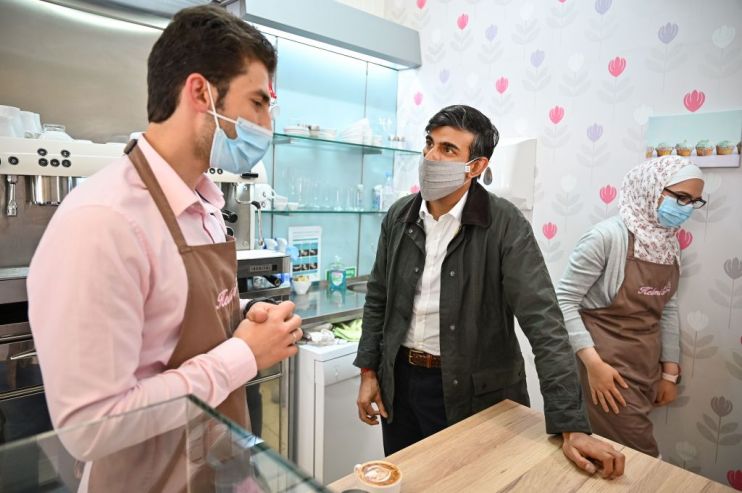Rishi Sunak’s new business support: What does it mean for you?

Chancellor Rishi Sunak has overhauled key parts of his winter economy plan to support struggling businesses as coronavirus cases rise and the government imposes new restrictions.
He made the job support scheme more generous for employers and boosted support for the self-employed.
But what exactly will the new changes mean for employers, employees and the self-employed?
How has the job support scheme changed?
Only last month, Sunak outlined a job support scheme (JSS) to replace the furlough programme. It will begin in November.
Last month the chancellor said employees would be eligible so long as they could work 33 per cent of their normal hours. For the time spent not working, the employer would have paid a third of the workers’ wages and the government would pay the other third.
But Sunak made big changes to the JSS today. Employers will now only have to pay five per cent of the workers’ wages for the time they are not working, up to a cap of £125 per month. This will reduce companies’ contributions massively from the original 33 per cent.
To be eligible, workers will now only have to work 20 per cent of their usual hours. This means they can work one day a week. It will further reduce the cost to employers, although they will still have to pay their staff for the hours they work.
Sunak said the JSS will be available in “all alert levels”. Firms under Tier 3 restrictions that are forced to close will receive extra help.
Firms with 250 or more employees will have to show their business has been hit. But there will be no test for small and medium-sized enterprises.
How much will the government now pay?
The government’s contributions will be much more generous than originally planned, reflecting complaints from businesses. It will now provide up to 61.7 per cent of wages for hours not worked, up from 33 per cent.
Government contributions are capped at £1,541.75 per month. That more than doubles the maximum payment envisaged in September.
Workers will now receive a minimum of 73 per cent of their normal wages, down from 77 per cent under the original JSS.
How can businesses access grant funding?
The chancellor also announced additional business grants of up to £2,100 per month.
These are for companies in high-alert level areas which are not legally closed, but have been hit by restrictions. The grant scheme is “primarily” for the hospitality, accommodation and leisure sectors.
Central government will make money for the grants available to local authorities, to reflect the localised nature of the new tiered restrictions system.
The Treasury said it will be “up to the local authorities to determine which businesses are eligible for grant funding”. They will also decide the exact levels of support.
The grants will be available retrospectively. That means companies that have been in high-alert areas would be able to claim for disruption from August onwards.
What’s in the package for the self-employed?
Sunak said he would increase the amount of profits covered by the two forthcoming self-employed grants.
Self-employed people will now be able to claim 40 per cent of profits, up from 20 per cent in September’s plan. This bumps up the maximum grant to £3,750.
The Treasury said the grant will be taxable and based on three months’ average trading profits.
The first grant will cover a three-month period from November until the end of January. The next grant will cover the February to April period.
The Institute of Directors said small business directors were “excluded” from support. Others said contractors and freelancers were not being supported by the government.